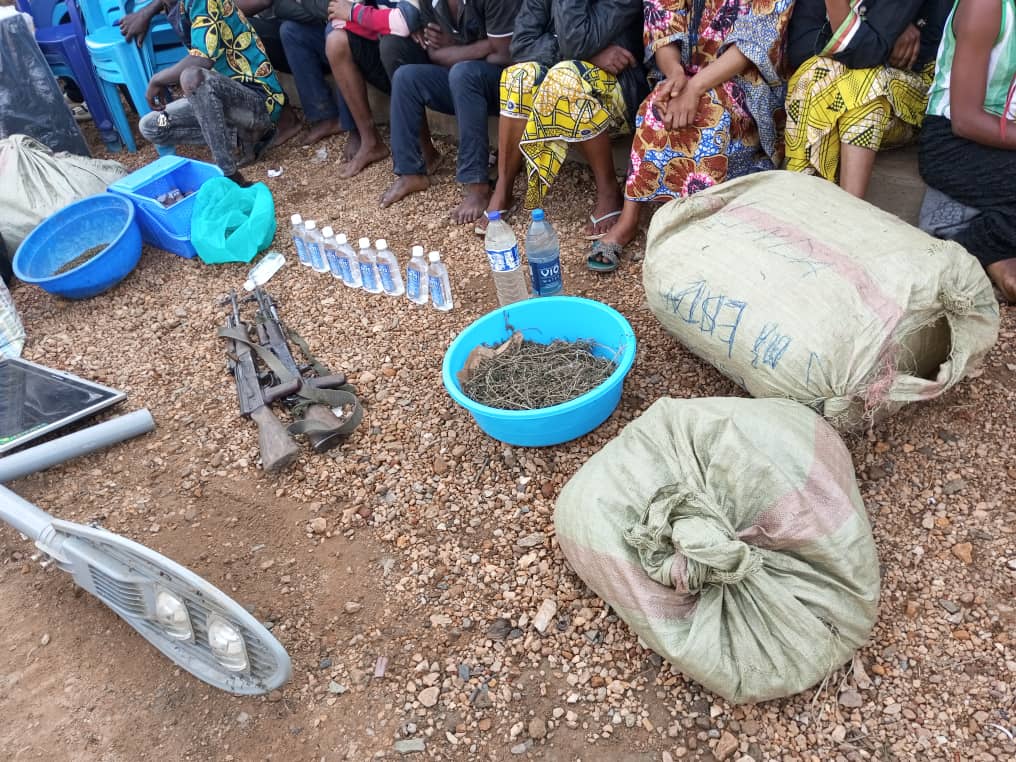** Matadi: a fierce fight against hemp traffic under the gaze of the police **
On March 14, the city of Matadi, in Kongo-Central, was the scene of a police operation revealing the security and drug challenges which gangrene certain regions of the Democratic Republic of Congo (DRC). Two hemp suppliers, Mavambu Kitsofi, better known as Muke Tonga, and Haïse, a head warrant officer of the DRC armed forces (FARDC), were arrested while they were in possession of ten bags of this prohibited substance. A seizure which, at first glance, may seem marginal, but which alerts to a fundamental problem: the involvement of members of the police in drug trafficking.
### A complex montage of an illegal chain
Hemp traffic is not only limited to the production and sale of this plant. It is a sprawling network whose ramifications affect the daily life of an increasing number of Congolese, often desperate economically. Far from the stereotypes linked to crime, the involvement of Muke Tonga and Moses underlines a disturbing reality. Members of the security forces, supposed to protect the population, sometimes find themselves playing a harmful role by facilitating traffic. This phenomenon is not limited to Matadi, it is visible in many other regions: a report from the United Nations Office against Drugs and Crime (UNODC) revealed that 35% of drug trafficking in DRC involve members of the police.
### disturbing statistic
The situation in Matadi raises concerns about the ethics and integrity of the security services. Statistics are alarming: in 2022, the DRC recorded a 20% increase in drug -related police interventions, a figure that continues to grow. Although the Congolese National Police (PNC) takes measures via operations such as Ndobo, it is crucial to understand that lasting success will depend not only on repression but also a deep overhaul of power structures and corruption within institutions.
### Call to denunciation: how far will the population go?
In his speech to the press, the provincial commissioner of PNC, Israel Kantu Bakulu, urged the population to engage in the denunciation of trafficking networks. However, this request poses an ethical dilemma. The fight against drug trafficking initiates complex social issues, often coupled with fear of reprisals. How to encourage citizens to denounce without fear for their safety or without risking being stigmatized as collaborators? The trigger of a real change will necessarily go through the creation of an environment where the protection of denunciators becomes a priority, accompanied by psychological and economic support for those who wish to distance themselves from criminal activities.
### to a global strategy
While the PNC and the Congolese state undertake to combat hemp traffic, it is essential to promote initiatives that also attack the socio-economic roots of this problem. The awareness campaign on the harmful effects of cannabis should be accompanied by education and support for economic development programs in rural areas, where poverty is povertying many young people to engage in illicit activities. In addition, neighboring countries such as Rwanda and Uganda have seen success in the rehabilitation of small drug producers to alternative crops, a model that could very well be adjusted and applied in the DRC.
### Conclusion: a need for transformation
The Matadi affair should not remain an isolated incident. It highlights challenges deeply anchored in the socio -political landscape of the DRC: corruption, poverty and ineffectiveness of the police. The solution lies not only in sporadic police operations, but in an integral overhaul of the way in which the company addresses the drug problem. By involving the population, by supporting sustainable economic initiatives and promoting adapted education, the DRC could take a decisive turn towards a real fight against hemp traffic and its consequences.
While the authorities announce repression measures, it is imperative that they incorporate a prevention approach, to transform the landscape of Matadi, and beyond, into a safe space and conducive to the development of its citizens.

